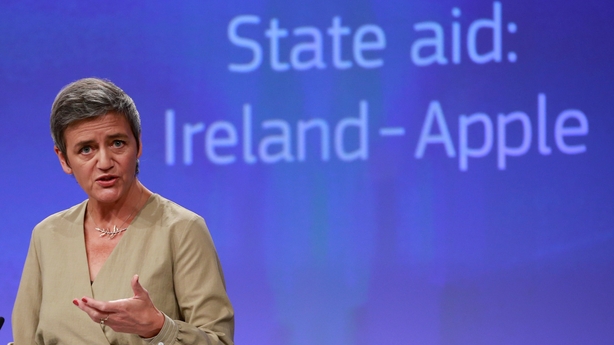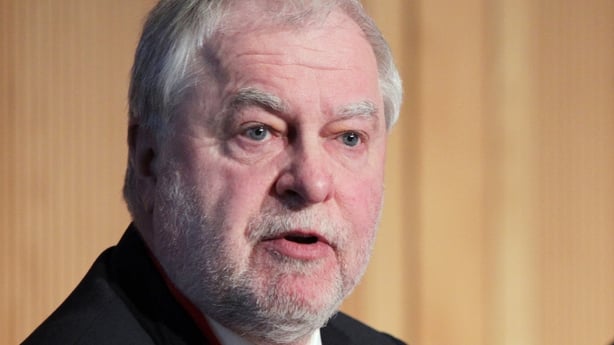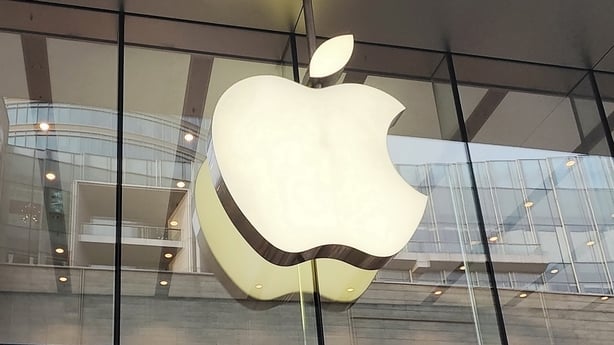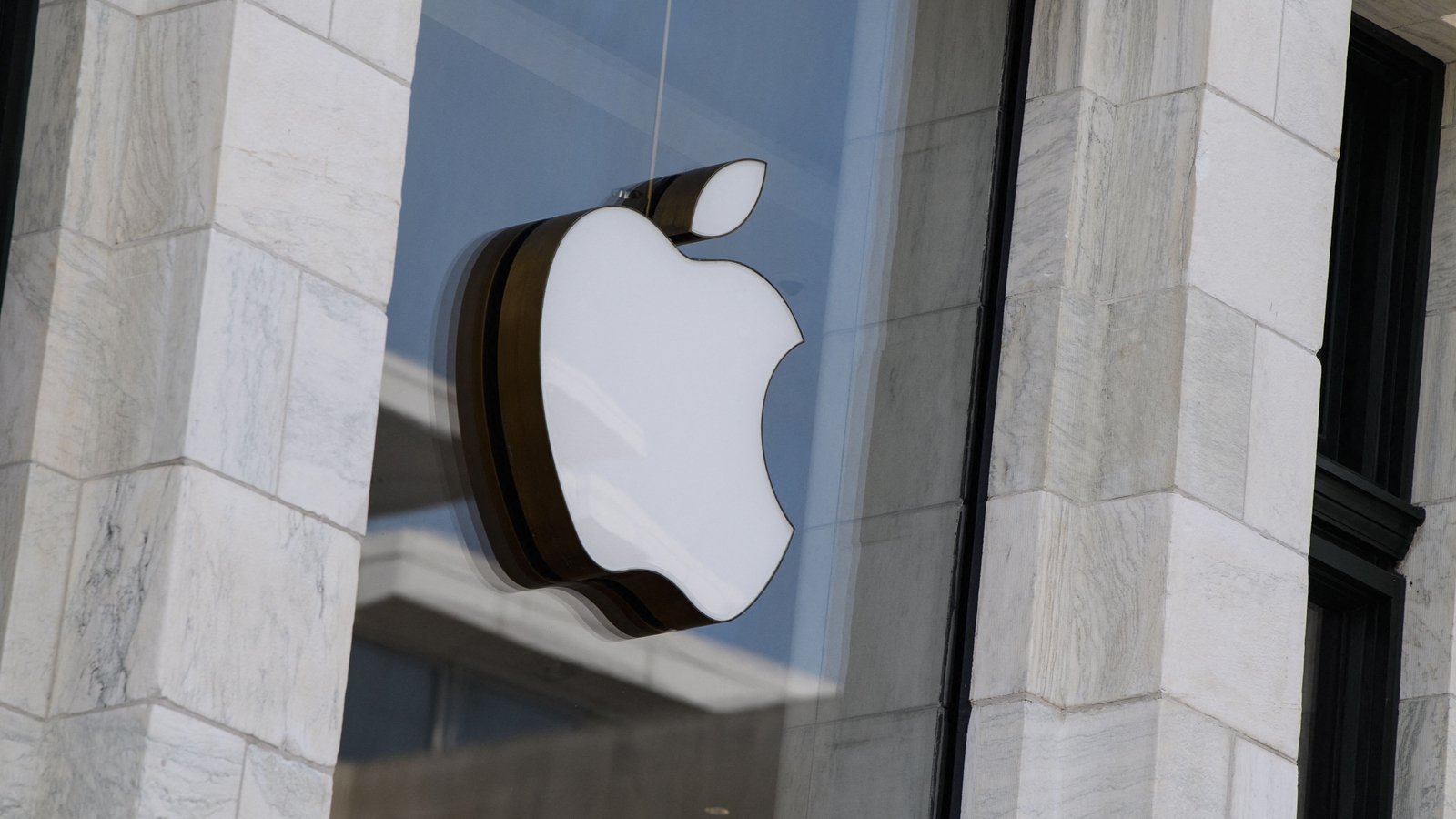So here we are again.
Another year and yet another development in the saga that has been the Apple tax case.
We will get a decision from the Court of Justice of the European Union, the EU’s highest court, in the appeal taken by European Commission against the lower court’s ruling.
Lost already?
Let’s go back and retrace the many twists and turns in this fascinating and high stakes battle for all involved.
Where did it all begin?
The whole kerfuffle has its roots in a 2013 appearance by Apple’s boss, Tim Cook, before a US Senate committee.
At the hearing, intense scrutiny was applied to Apple’s tax arrangements.
The company was accused by Senators of sheltering billions of dollars in profits in “ghost companies” in Ireland that did not pay tax elsewhere.
Ireland was even labelled a “tax haven” – a serious accusation which has been repeated by some critics of our tax regime since then.
The European Commission was watching and subsequently began an in-depth investigation into Apple’s tax affairs in Ireland a year later.
And that led to the commission’s decision?
Correct.
It was the commission’s view that these determinations in effect rubber-stamped a method of determining the taxable profits for two companies based in Ireland – Apple Sales International and Apple Operations Europe – which were managed from outside the country and were responsible for all Apple’s sales outside of the Americas.
In its ruling, the commission claimed the Revenue determinations did not correspond to economic reality because almost all the profits recorded by the two companies were attributed internally by Apple to a “head office”.
But the commission concluded the head office only actually existed on paper and as a result could not have generated such profits.
This was a problem because it is illegal under long-established EU state aid rules for any country to give preferential treatment to one company over another when they are both subject to the same tax rules in that state.
The effects of that went wider than Ireland though.
According to the commission, Apple was booking all its sales across the EU in Ireland, rather than in the countries where its iPhones and iPads, among other products, were being sold.
In the process, it did not have to pay tax on almost all of the profits, it was alleged.
The result, the commission declared, was that Apple owed €13.1 billion in unpaid taxes to Ireland for the period between 2003 and 2014 (when Apple changed its structures), as well as €1.2 billion in interest.
Presumably Apple wasn’t very happy about that?

No it, and Ireland for that matter, were very unhappy.
As a result, they decided to appeal.
Apple strenuously denied at the time that it had any kind of a special deal and has maintained then and since in the strongest possible terms that it pays the tax it owes everywhere it operates.
“The European Commission has launched an effort to rewrite Apple’s history in Europe, ignore Ireland’s tax laws and upend the international tax system in the process,” wrote CEO Tim Cook in a public letter in August 2016.
He warned that the impact could have a profoundly harmful effect on investment and job creation in Europe.
Concerned about the external perception of the country, the Government also took the decision to appeal the ruling.
Ireland had long been criticised by some outsiders over its 12.5% corporation tax rate, which has proven to be the bedrock for foreign direct investment for decades.
The view, therefore, in government circles was that anything that questioned the basis of the country’s tax policy may not be good for future investment.
It also had to be seen to back Apple, which pays more tax here each year than any other organisation or individual.
So, what happened with the appeal then?
The case was heard over two days in September of 2019 by the lower General Court of the EU.
The following July the court delivered its decision, annulling the commission’s findings.
The court found the commission was wrong to declare that Apple Sales International and Apple Operations Europe had been granted a selective economic advantage and, by extension, State aid.
It said the commission failed to show “to the requisite legal standard” that Apple enjoyed preferential treatment which amounted to illegal state aid.

But the commission did not accept the decision and in September 2020 said it would lodge an appeal.
Commissioner Margrethe Vestager claimed the court had made a number of “errors of law”.
“The General Court judgment raises important legal issues that are of relevance to the commission in its application of state aid rules to tax planning cases,” she said at the time.
“The commission also respectfully considers that in its judgment the General Court has made a number of errors of law,” she added.
Ms Vestager said ensuring “all companies, big and small, pay their fair share of tax remains a top priority for the commission”.
“The General Court has repeatedly confirmed the principle that, while member states have competence in determining their taxation laws, they must do so in respect of EU law, including state aid rules,” she said.
And that appeal is the one we are talking about today?
Yes, that is right.
The Court of Justice of the EU heard that appeal back in May of last year.
At the hearing, the commission’s lawyer Paul-John Loewenthal argued that the lower court’s judgment was “legally flawed” and should be set aside.
“Its outcome will determine whether member states may continue to grant multinational substantial tax breaks in return for jobs and investments,” Mr Loewenthal told the court.
He claimed that Ireland had misapplied its tax laws when Revenue made the two tax rulings in 1991 and 2007 and as a result, Apple got substantial tax breaks compared to other taxpayers.

But Apple’s lawyers refuted the commission’s arguments and claimed it had made numerous errors and misrepresentations.
They also argued that the company had paid its fair share of taxes in the appropriate country.
“The profits we are talking about – the profits the commission said should be attributed to these branches in Ireland – those profits were in fact subject to the US tax regime,” Daniel Beard told the court.
“Apple built up reserves for the payment of those US taxes and is paying around €20 billion in tax in the US on those very same profits that the commission says should have been taxed by Ireland,” he said.
“Apple has paid the taxes that were due under the Irish tax code,” he added.
Former Attorney General Paul Gallagher who was representing Ireland, said the European Commission’s analysis “was infected” by the “wrong legal premise” and he accused the commission of making “entirely misleading remarks”.
Didn’t we get a decision on this appeal a few months ago?
Not quite.
Part of the ECJ process sees an Advocate General of the court give a non-binding opinion in advance of the judges making their final ruling.
In November of last year, the Advocate General in this case proposed that the European Court of Justice should set aside the judgment of the lower General Court and refer it back to the General Court for a new decision.
Giovanni Pitruzzella found that the General Court committed a series of errors in law when it ruled that the commission had not shown to the required legal standard that the intellectual property licences held by Apple subsidiaries based in Ireland and related profits generated by the sales of Apple products outside the US, had to be attributed for tax purposes to the Irish branches.
He also said the General Court failed to assess correctly the substance and consequences of certain methodological errors that, according to the commission decision, undermined the validity of the tax rulings.
In his view, it is necessary for the General Court to carry out a new assessment.
So, is it likely that the judges will back the Advocate General’s view?

History has taught us that it is unusual for an Advocate General’s opinion not to be followed by the court.
But it is not unheard of.
If the court backs the Advocate General’s view, then the case goes back to the General Court – a process that will add years to this saga.
If, however, there is a surprise and the court goes the other way, then the matter is over.
Apple will get its money back and Ireland gets its reputation restored.
Speaking of the money, where is the €13.1 billion now?
Actually, the figure including interest was €14.3 billion.
It has been sitting in an escrow or temporary third-party holding account since being put there by Apple in 2018.
However, time hasn’t been kind to it and some of the investments into which the money has been put have lost ground in the interim.
According to the latest report from the National Treasury Management Agency, which oversees the administration of the escrow, at the end of 2023 it contained €13.774 billion.
That was up €400 million on the end of 2022, as some of the losses were recouped.

